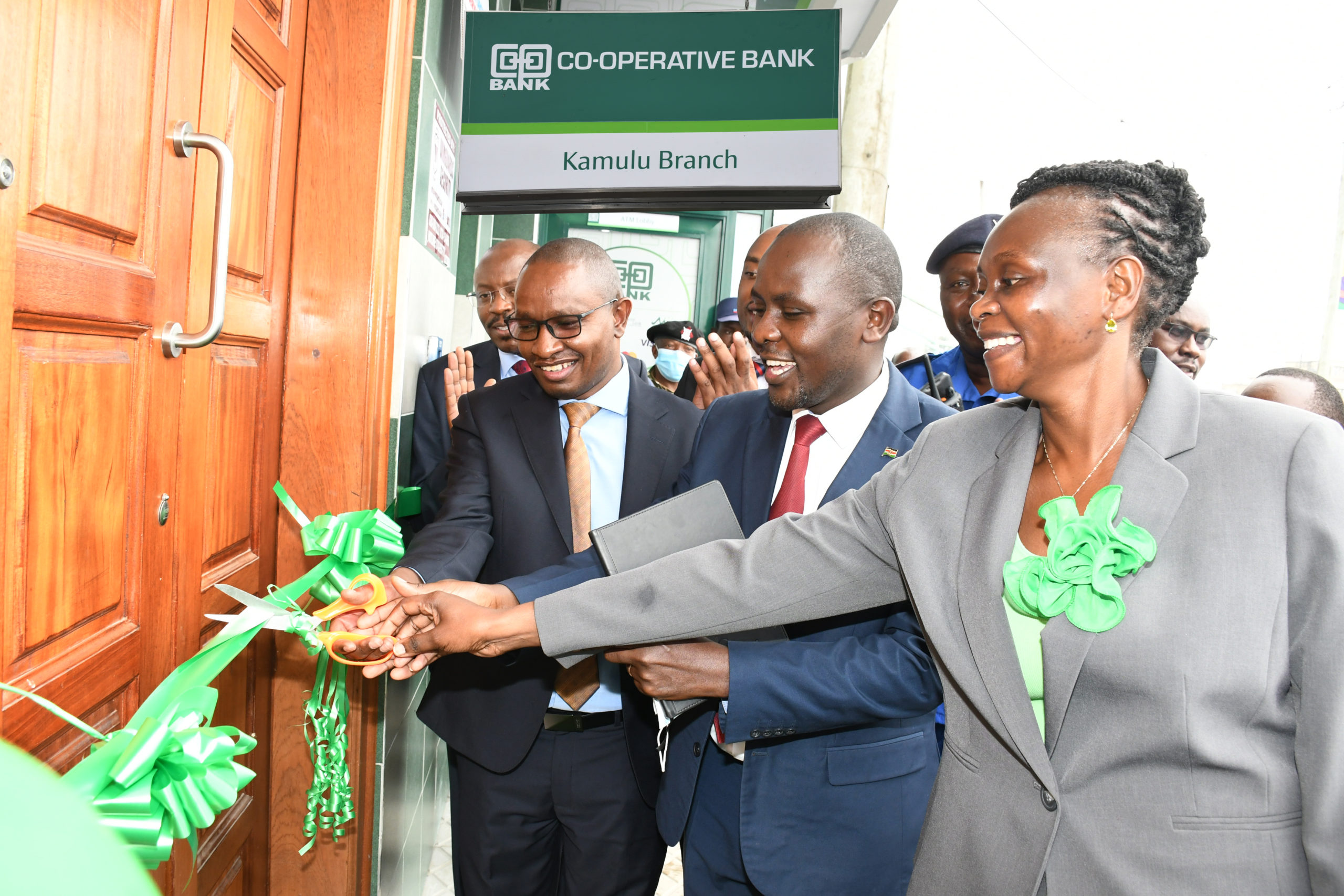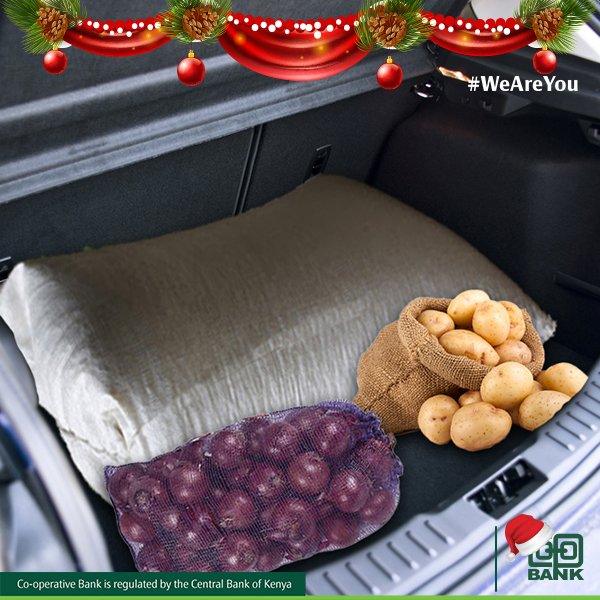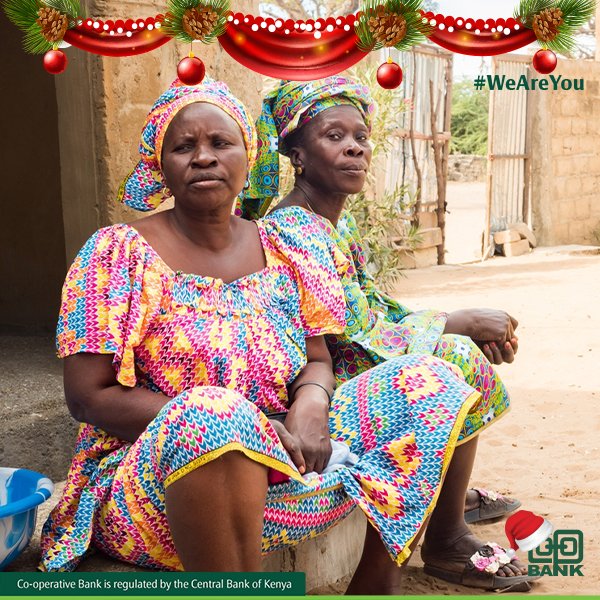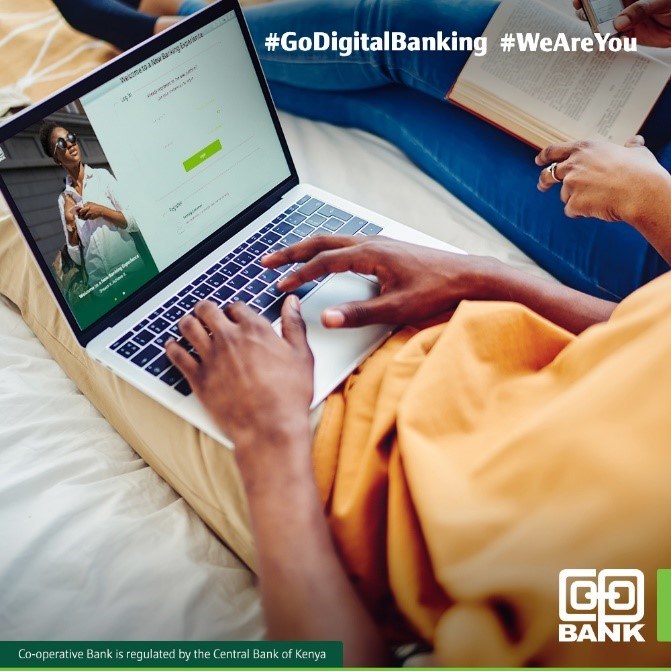Co-operative Bank of Kenya has bucked the industry trend where several lenders have rolled back their brick and mortar footprint, and is expanding physical outlets to add onto the current 173 branches in Kenya.
Seven new Co-op Bank branches are underway in carefully-selected locations namely Kamakis on Nairobi’s Eastern Bypass, Kabarnet, Iten, Moyale, Mwiki/Kasarani, Bunge at the new Parliament Tower in Nairobi and Kamulu in Nairobi Eastlands that opened doors in December last year.
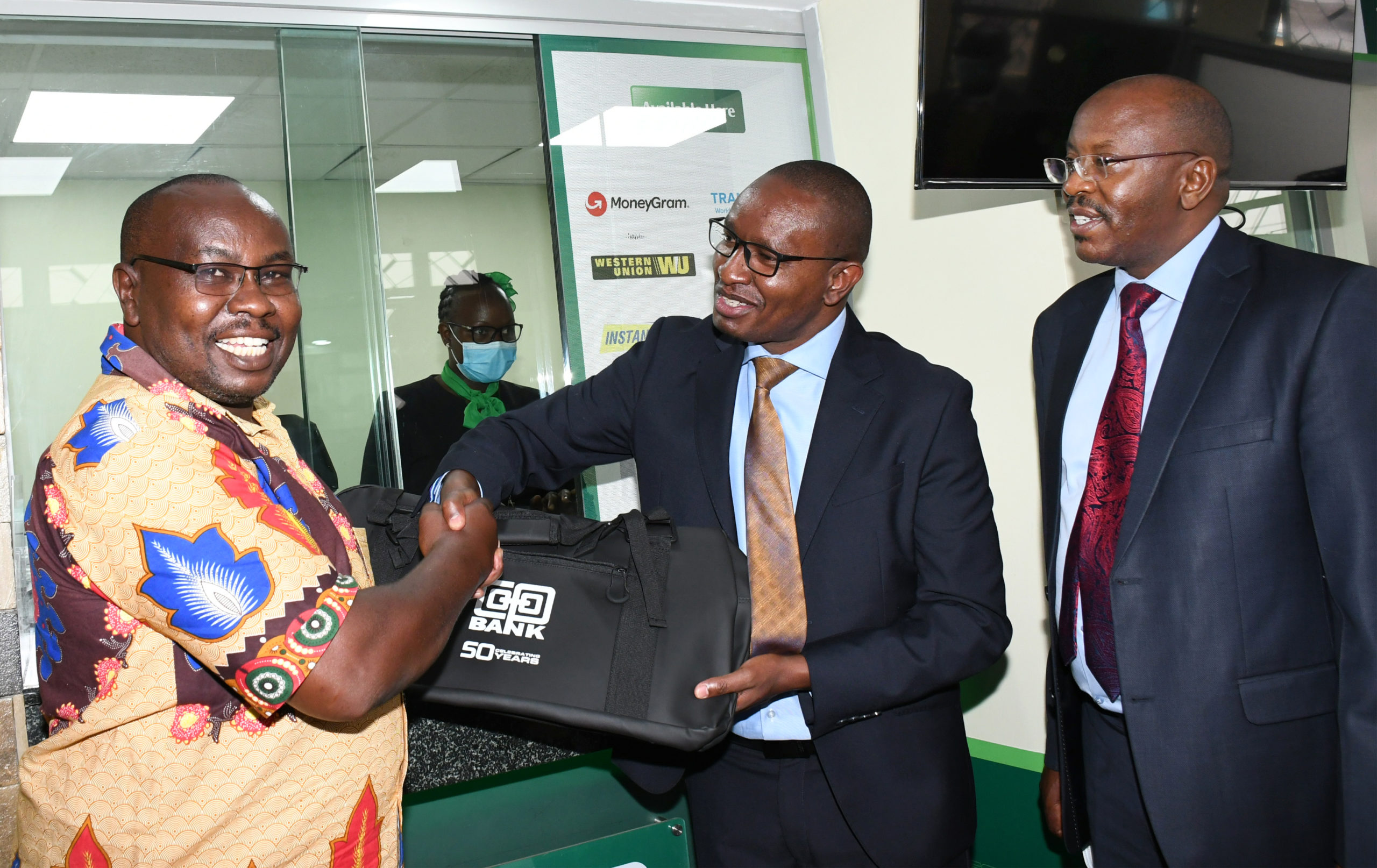
The expansion of brick and mortar presence will complement the bank’s robust Digital Banking channels that continue to grow in popularity to now handle over 90% of customer transactions, with Mco-opCash mobile wallet having registered 5.3 Million users and disbursed Kshs 51.3 billion in loans as at the close of the third quarter of last year, averaging Kshs. 5.7 Billion per month.
The decision to determine need and location of new branches is determined through rigorous market research.
The new branches do not typically increase staff headcount as they are usually staffed from existing teams, following the branch transformation and digitization program implemented under the Soaring Eagle project that has enabled agile resourcing of the business.
Banks have been making cost savings by rolling back their branch network as some customers prefer to use online banking services, what informs the decision to buck this trend and open new branches?
First, selection of branch sites is always supported by rigorous market research to ensure viability, for which reason we’ve never closed a branch in our 50-year history.
Co-op Bank’s new branches give us an insight into emerging centres of economic activity that are currently underserved by banks.
Second, we believe there is no one single channel that will displace all others, rather, it’s the investment in an optimal and balanced multichannel strategy that will offer a fulfilling experience to the customer.
The emerging theory that bank branches and ATMs will cease to exist is largely wishful thinking driven by desires to cut brick and mortar costs, and not by credible customer feedback on the service outlets through which customers prefer to be served.
Whilst some customers will do some transactions online or on cellphone, a significant section of customers will always prefer to engage a bank through a physical branch, especially for certain services, for a long time to come.
Third, Co-op Bank branches are Service Hubs, as they serve not just own customers, but also service the bank’s subsidiary network including Saccos especially those running FOSAs now numbering 479 countrywide, and 23,000 bank agents who depend on our cash management services, training and supervision to run.
How can we have a viable bank agency network or Fosas when the nearest bank branch is say over 50 kms away?
Four, for Co-op Bank a branch is not just a transactional point, it’s a statement of intent to build sincere lifelong relationships.
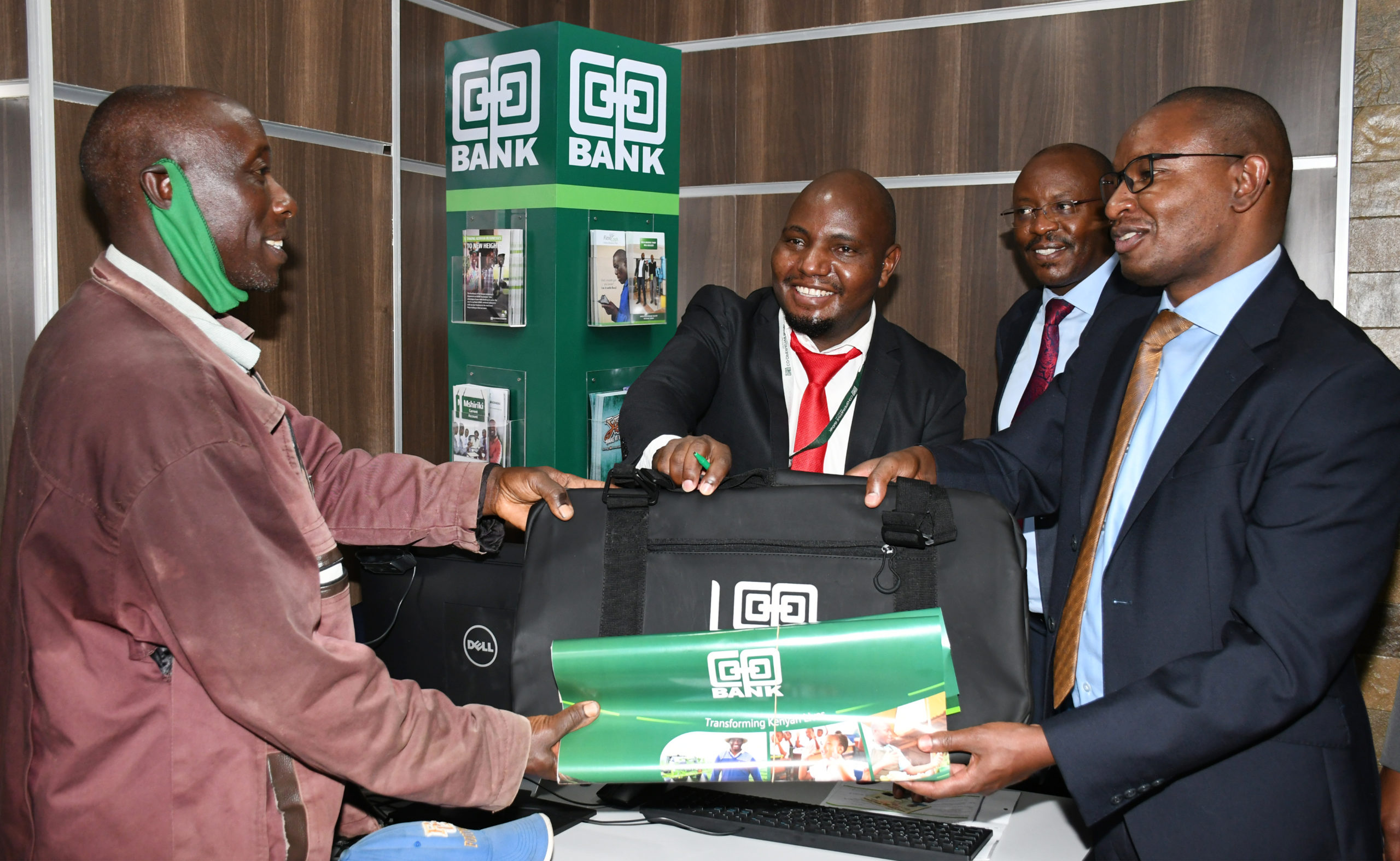
Fourth, the advent of Devolution and establishment of County Governments has fostered a totally new economic dynamic with counties emerging as new centres of economic dynamism.
Co-op Bank has a County Banking Strategy aimed at building competencies to serve the unique needs of the various counties and communities.
This includes having some form of physical presence in all counties, as it would be highly unlikely that any county would partner with a bank that has no presence in a county.
The ongoing migration of routine bank transactions such as cash withdrawals, deposits and payments to alternative channels offers banks the space for deeper engagements with customers and the wider community.
This includes more focus on customer advisory, consultancy and training, to build lifelong relationships, brand immersion and sustainable value-add to the communities in which we do business.
Similar to other lifelong relationships, banking needs to be nurtured for the long term rather than regarded as transactional interactions.

